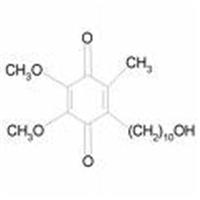
Idebenone is a man-made antioxidant, similar to Co Q10, which was originally used to preserve transplant organs. It is widely used in topical anti-wrinkle creams.
Idebenone Fights Photoaging, Improves Skin Health
As adults age, their skin is more likely to exhibit the effects of photoaging, which produces negative changes in skin color, texture, and health caused by cumulative exposure to ultraviolet light. New findings suggest that antioxidant-rich, high-energy compounds may help defend against the effects of photoaging.
Free radicals damage not only proteins and DNA, but also the skins surface lipids. Made up of a complex mixture of sebum (an oily substance produced by the sebaceous glands) and small amounts of epidermal lipids, these surface lipids provide the bodys outermost protection against oxidative damage.
Coenzyme Q10 (CoQ10) is a fat-soluble antioxidant that helps prevent free-radical damage to the skins surface lipids. However, CoQ10 concentrations in skin decline significantly in older people.9 The loss of this protective nutrient is a likely cause of the increased incidences of skin diseases and photoaging seen in aging adults.
In fact, an eight-year Italian study found a direct link between CoQ10 levels and the progression of melanoma, the deadliest of skin cancers.Not only were CoQ10 concentrations in people with melanoma lower than in healthy subjects, but patients whose cancer spread (metastasized) to other tissues had CoQ10 levels below those of the metastasis-free subgroup. Clearly, CoQ10 is an important protective nutrient for aging skin.
Recognizing the importance of CoQ10 in skin health, scientists searched for related compounds that can confer even greater benefits to the skin. This search led to idebenone, a nutritional cousin, or analogue, of CoQ10. Since idebenone is a smaller molecule than CoQ10, it is better suited to penetrating the skin, where it can confer important protective effects.
Idebenone has been shown to produce clinically visible improvements in photodamaged skin. In a study of 41 female subjects aged 30-65, applying idebenone to the face in the morning and evening for six weeks reduced skin roughness and dryness by 26%, and decreased fine lines and wrinkles by 29%.The subjects also exhibited a 37% increase in skin hydration and a 33% overall improvement in assessment for photodamaged skin. These improvements were primarily seen in the epidermis, though there was some increase in dermal collagen as well. Skin biopsies revealed decreased levels of an inflammatory protein, a change associated with the stimulation of collagen production. Topically applied idebenone thus improves numerous markers of skin health while reducing the visible signs of aging.
Idebenone may protect the skin through its potent antioxidant effects.One research team studied various antioxidants to gauge their protective effects against oxidative stress. They found that idebenone was the most effective antioxidant studied, providing more protection than CoQ10, vitamin E, kinetin, vitamin C, or lipoic acid.This antioxidant quality allows idebenone to inhibit lipid peroxidation, thus protecting skin cell lipids and membranes.
Topical use of idebenone represents an important step forward in scientifically based skin care. Through its antioxidant effects, idebenone helps protect skin from the effects of oxidative stress and photoaging, restoring moisture, refining texture, reducing fine lines and wrinkles, and promoting a more youthful appearance.
